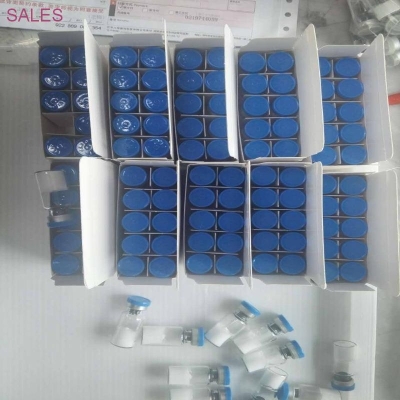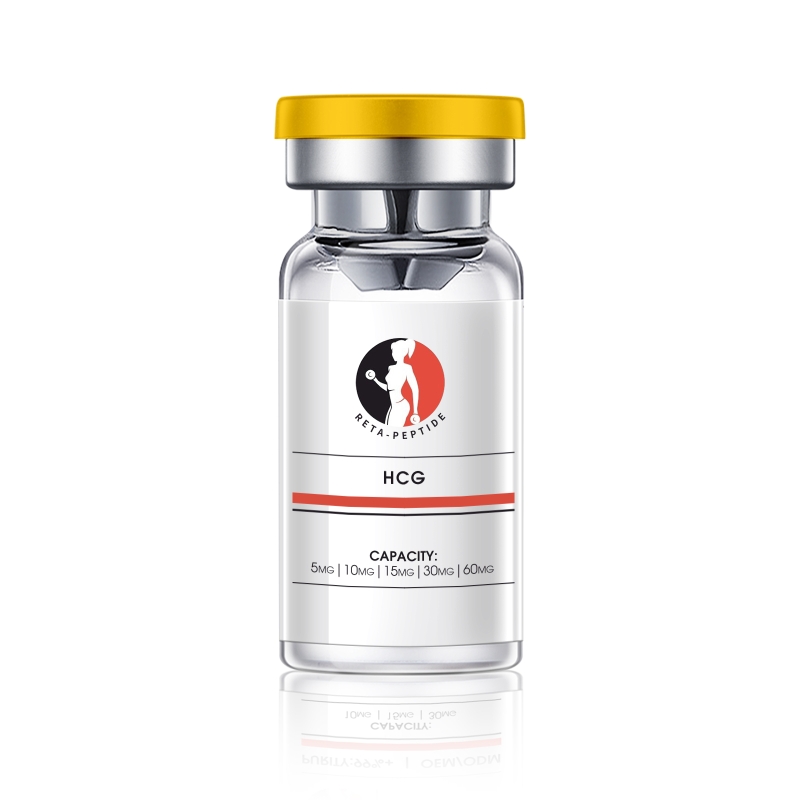-
Categories
-
Pharmaceutical Intermediates
-
Active Pharmaceutical Ingredients
-
Food Additives
- Industrial Coatings
- Agrochemicals
- Dyes and Pigments
- Surfactant
- Flavors and Fragrances
- Chemical Reagents
- Catalyst and Auxiliary
- Natural Products
- Inorganic Chemistry
-
Organic Chemistry
-
Biochemical Engineering
- Analytical Chemistry
-
Cosmetic Ingredient
- Water Treatment Chemical
-
Pharmaceutical Intermediates
Promotion
ECHEMI Mall
Wholesale
Weekly Price
Exhibition
News
-
Trade Service
TCR-T and CAR-T emerged in the same period, and like CAR-T, TCR-T technology is constantly updated and iterated
.
Unlike CAR, TCR, as an antigen-recognizing element in T cell therapy, is able to recognize a wider range of potential tumor-specific antigens, especially for hypersensitivity recognition of low-level/mutated intracellular antigens, while CAR only recognizes tumor antigens
on the cell surface.
Due to the late start, the development process of TCR-T is relatively slow, and TCR-T mainly faces three technical difficulties: TCR-T is difficult in T cell acquisition and purification; Selecting new safe targets is the biggest challenge in tumor immunotherapy; TCR must be matched to the patient's HLA allele to recognize pMHC and kill cancer cells, so screening for the appropriate HLA match is also important
.
Global pharmaceutical researchers are attacking these difficulties, from the perspective of this year's financing of biological innovative drugs, the TCR-T field shows a warming trend: on February 16, Tiankeya Biotechnology completed 300 million yuan financing; On August 3, FanEn Biotech completed a pre-A round of financing of nearly 100 million yuan; On October 31, Beijing Kerui Biotech completed the 100 million yuan Pre-A+ round of financing; On November 1, Liling Biotech completed tens of millions of yuan in angel round financing.
.
.
These companies have innovated TCR-T technology accordingly, so they can obtain financing, TCR-T may have a new technical iteration, and the entire field may usher in a new wave of enthusiasm
.
Therefore, this article makes an inventory of the TCR-T technology laid out by TCR-T enterprises that have completed financing at home and abroad in the past year:
Domestic: TCR rapid screening platform and cloning technology
Domestic: TCR rapid screening platform and cloning technologyLiling Biotechnology
Liling BiotechnologyNOVEMBER 1, LEALING
Biopharma) completed tens of millions of yuan in angel round financing, co-invested
by Mint Angel Fund and Yuansheng Venture Capital.
Liling Biotech has multiple technology platforms such as TCR rapid cloning and screening technology that does not rely on gene synthesis, a variety of optimized aAPC models, immune cells secreting single-domain antibodies, and optimized TCR bispecific antibody structure, which can further eliminate the existing shortcomings of
TCR-related drugs.
The key bottlenecks in TCR therapy today lie in the screening, identification, scale-up process, and preparation cycle
of specific TCR.
The new generation of self-developed TCR rapid screening platform and cloning technology established by Liling Biotech shortens the screening cycle from about two months to about three weeks, which can effectively solve the problems of
long time and low throughput of sequence screening.
Kerui Biotech
Kerui BiotechOn October 31, Beijing Kerui Biotechnology Co.
, Ltd.
completed the 100 million yuan pre-A+ round of financing, co-led by Sunshine Ronghui and Xinrui Medical, and co-invested
by Longmen Capital.
, Ltd
This round of financing will be used to advance multiple innovative TCR-T cell therapy products and soluble TCR protein drug development pipelines, including cell therapy products targeting KRAS-G12 mutations and innovative TCR protein drugs
targeting KRAS-G12 mutations worldwide.
Through technological innovation, Kerui Biotech has established a systematic TCR R&D platform, which solves a series of technical difficulties in TCR cloning and optimization, and can efficiently carry out the development of TCR innovative drugs.
Based on the international leading SMART-TCR affinity optimization platform, the success rate and efficiency of TCR affinity optimization are greatly improved, and a perfect soluble TCR protein drug research and development technology platform
is built.
Based on the highly innovative R&D technology platform and mature process development and analysis quality control industrialization platform, we have developed a rich product pipeline for multi-target and multiple solid tumors and viral infectious diseases
.
Based on the international leading SMART-TCR affinity optimization platform, the success rate and efficiency of TCR affinity optimization are greatly improved, and a perfect soluble TCR protein drug research and development technology platform is built
Pan-En Bio
Pan-En BioOn August 3, Fangen Biotech announced the completion of a pre-A round of financing
of nearly 100 million yuan.
This round of financing was led by China Capital, with participation from Rev Venture Capital and Yabao Pharmaceutical
.
According to the official website of Fangen Biologics, the company has developed a number of solid tumor T cell therapy products, including personalized polyclonal TCR-T cell therapy drugs, single-target TCR-T/CAR-T, and genetically modified cell therapy products TAL (tumor-associated lymph node T cells).
Among them, the company's first cell therapy product has entered the clinical research stage
.
Fangen Biotech relies on a number of world-class technology platforms independently developed and established, including the genome-wide T cell signal optimization technology platform (GSOP for).
T-cell), TCR high-throughput screening platform (HAP for
TCR), personalized TCR-T cell production technology platform, T cell efficient delivery system platform (TDP), etc.
, systematically solve the key technical bottlenecks
in solid tumor cell therapy.
The company takes the famous domestic cancer hospital as the base, carries out the research and development and application of TCR-T, CAR-T, TAL, TIL and other cell therapy products, and the company also has the world's leading personalized tumor antigen-specific TCR-T cell therapy, personalized immunodiagnosis and efficacy evaluation, individualized precision combination therapy and other technologies, providing efficient treatment drugs and programs
for patients with common malignant tumors.
T-cell), TCR high-throughput screening platform (HAP for TCR), personalized TCR-T cell production technology platform, T cell efficient delivery system platform (TDP), etc.
, systematically solve the key technical bottlenecks in solid tumor cell therapy
Tiankoya
TiankoyaOn February 16, Tiankeya Biotechnology, the owner of the first TCR-T clinical trial approved in China for the treatment of cervical cancer, completed a financing of 300 million yuan, becoming the second largest enterprise
in the field of "immune cell therapy" in the first quarter.
With the ultimate goal of engineering T cells, Tiankeya is committed to pioneering new therapies
in the field of solid tumors through the rolling development of a series of CAR-T and TCR-T immune cell therapy products.
The most interesting is that its clinical trial of TCR-T therapy loaded with anti-PD-1 antibody for the treatment of advanced cervical cancer has been approved
by the Center for Drug Evaluation of the National Medical Products Administration of China.
It became the first TCR-T approved for the treatment of cervical cancer in China, and the first HPV loaded with anti-PD-1 antibody approved in the world
TCR-T clinical trials
.
At present, Tiankeya has established a number of core technology platforms related to immune cell therapy, including TCR screening, industrialized cell therapy-related viral vectors and immune cell modification platform, single-cell sequencing technology platform, TCR receptor library, HLA typing and identification technology platform, bioinformatics data analysis platform, etc
.
, and various commercial production facilities are also gradually following up.
Abroad: diversified technological innovation
Abroad: diversified technological innovationImmunocore
ImmunocoreOn July 19, Immunocore announced the completion of a $140 million private placement to advance its oncology and infectious disease pipeline, including the development of its lead tebentafusp in advanced cutaneous melanoma and other bispecific T cell receptor (TCR) immunotherapies
targeting MAGE-A4 and PREME antigens.
The company's innovative technology platform fuses TCRs that target tumor antigens with immune effector domains that bind to CD3 receptors on the surface of T cells
.
This bispecific protein guides and activates T cells, allowing them to recognize and kill cancer cells
.
It is worth noting that this technology can enable TCR to recognize cancer antigens in cells with high affinity, which is expected to break through the limitations of existing antibody drugs and increase the number of identifiable targets from 10% to 90%.
In addition, based on the existing mechanism of T cell infiltration into human tumors, Immunocore also pointed out that its TCR technology is expected to be used to treat immunological "cold tumors", that is, tumors
with low mutation rates and traditionally difficult to attract the attention of the immune system.
ImmunoScape
ImmunoScapeOn September 20, preclinical biotech company ImmunoScape announced the completion of a new $14 million funding
round.
Existing investor Anzu
Partners led the investment, with new investors Amgen Ventures and EDBI joining us
.
ImmunoScape is focused on discovering and developing next-generation T cell receptor (TCR)-T cell therapies
.
The company differentiates Deep
The Immunomics platform utilizes proprietary combinatorial barcoding technology to discover and deeply characterize rare cancer-specific T cells
with high sensitivity.
According to the official website, this platform can identify antigen-specific CD8-positive T cells
with a frequency of only 0.
001%.
with high sensitivity.
According to the official website, this platform can identify antigen-specific CD8-positive T cells with a frequency of only 0.
001%.
ImmunoScape's platform utilizes a peptide-MHC coding system for high-throughput screening with large antibody groups, enabling simultaneous assessment of tens of millions of T cells in blood samples from hundreds of cancer patients to identify rare treatment-relevant T cells and their TCRs
.
▲ TargetScape target screening platform (Image source: ImmunoScape official website)
These antigen-specific candidate T cells are then sequenced by single cells, and their TCR sequences, phenotypes, and gene expression levels are analyzed and prioritized to construct different TCR-T cell therapy combinations
.
TCR antigen analysis (Image source: ImmunoScape official website)
In summary, by leveraging computational biology and machine learning, as well as high-throughput screening and evaluation of T cell clones, ImmunoScape is able to effectively identify new T cell therapy targets and TCR
candidates.
The company has extensively validated its computing platform using virus-specific T cells and is applying the same approach to build a broad portfolio of cancer-specific TCRs
.
ImmunoScape currently has several development projects underway and is moving
toward IND-enabling research and clinical research.
3T Biosciences
3T BiosciencesOn August 26, 3T Biosciences announced the completion of a $40 million Series A financing
.
At the same time, it was also announced from Stanford University
The University has access to the innovative T Cell Receptor (TCR) mimetically discovery platform and the still-developed MAGE-A3
Exclusive licensing of T cell receptor (TCR)-T assets to rapidly expand 3T's therapeutic pipeline
.
3T's 3T-TRACE platform (TRACE stands for "T Cell Receptor Antigen and Cross-Reactive Engine") combines a highly diverse target library with AI machine learning techniques to identify new targets and TCRs
.
This platform can identify tumor-specific anti-tumor immune responses from patient specimens, and find the most prevalent and immunoantigenic targets in solid tumors
.
Then, through machine learning algorithms, a large number and comprehensive screening of those targets that can bind to TCR and activate T cells is carried out
.
.
This platform can identify tumor-specific anti-tumor immune responses from patient specimens, and find the most prevalent and immunoantigenic targets in solid tumors
.
Then, through machine learning algorithms, a large number and comprehensive screening of those targets that can bind to TCR and activate T cells is carried out
Image source: 3T Biosciences official website
Finally, the platform will extensively examine and verify the specificity and cross-reactivity of TCR and its corresponding targets, and then identify TCR or TCR mimics with therapeutic effects, which can be used for safe, tumor-specific and high-dose immunotherapy
.
In addition to its use in TCR cell therapy, the platform can also be used to develop TCR mimic bispecific therapies (TCRm).
bispecific) and peptide vaccines (peptides
vaccine)
。 In addition to the field of cancer, these technologies also have the potential to be used in the treatment of autoimmune diseases and viral infections
.
epilogue
epilogueCompared with CAR-T, TCR-T therapy has its unique advantages, first of all, TCR-T can target not only cell surface antigens, but also intracellular antigens
.
For this reason, TCR-T technology has a wider application prospect than CAR-T, especially in the field of solid tumors, TCR-T technology has obvious advantages
.
According to statistics, 90% of the world's cancers are solid tumors, and blood cancers account for only 10%.
Secondly, TCR-T is more likely to penetrate
into solid tumors than CAR-T.
This also helps TCR-T technology play a greater role in the field of solid tumors; Finally, TCR-T introduces a completely humanized structure, which is not easy to cause immune rejection of the body, and the probability of antibody production is low, so the safety risk is greatly reduced
.
As TCR-T technology continues to overcome various existing problems, it is believed that TCR-T technology itself will be more widely used
in the future.







